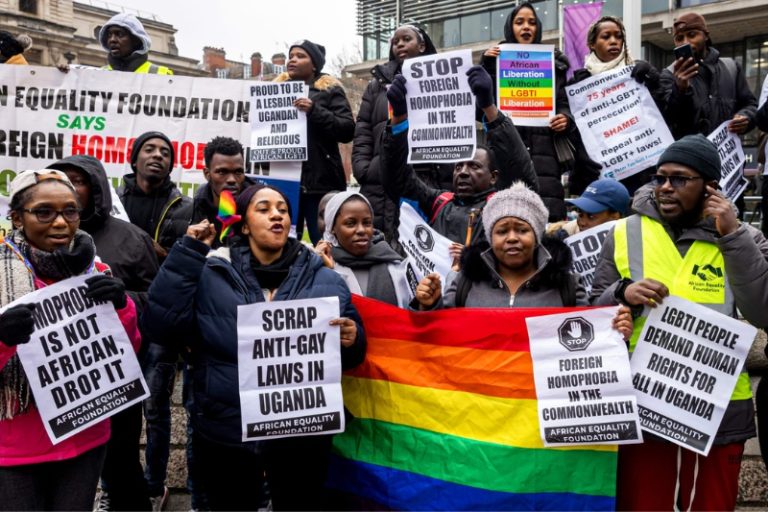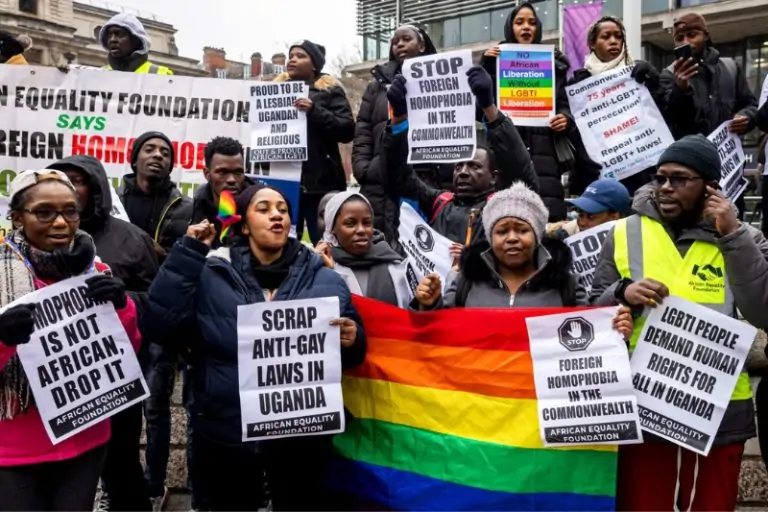

uganda upholds the anti gay law causing mixed reactions
The Constitutional Court’s decision to uphold Uganda’s anti-gay law has sparked mixed reactions within the country. While some support the law, viewing homosexuality as imported behaviour contrary to Ugandan values, others express concern over its implications for human rights and the LGBTQI community’s well-being. President Yoweri Museveni’s endorsement of the law in 2023 further entrenched its position, despite international condemnation and calls for its repeal.
The court’s ruling maintains the legality of a law that criminalises homosexuality, with “aggravated homosexuality” carrying the possibility of life imprisonment or even the death penalty in severe cases. This legislation not only perpetuates stigma against LGBTQI individuals but also hampers access to essential healthcare services, particularly for those living with HIV/AIDS. The judgement’s impact extends beyond legal confines, shaping societal attitudes and exacerbating the marginalisation of already vulnerable communities.
Despite the setback, advocates for LGBTQI rights remain undeterred. Legal representatives of the petitioners vow to pursue the case in the Supreme Court, seeking to overturn the law and secure fundamental rights for all Ugandans. The ongoing struggle against discriminatory legislation underscores the resilience of civil society in Uganda and the global imperative to uphold human rights for all individuals, regardless of sexual orientation or gender identity.
Legal debates cannot overlook the public health implications of Uganda’s anti-gay law. HIV/AIDS has historically severely affected the country, and experts warn that stigma and fear of punishment could deter individuals from seeking necessary medical care. Ensuring access to healthcare without discrimination is essential for effective disease management and prevention, making it imperative to address the intersection of legal frameworks and public health initiatives in the fight against HIV/AIDS.
Uganda’s stance on LGBTQI rights has drawn attention on the international stage, with activists and organisations advocating for global recognition of human rights principles. The Constitutional Court’s decision underscores the broader challenges faced by LGBTQI communities across Africa and beyond, highlighting the urgent need for concerted efforts to combat discrimination and promote inclusivity. As discussions around LGBTQI rights continue to evolve globally, Uganda’s anti-gay law serves as a reminder of the ongoing struggle for equality and justice for all individuals.
National teams from Africa advance their World Cup qualification pursuit as they take part in Matchday 5 of the qualifiers.…
Creative Africa Nexus (CANEX) is running the Book Factory Prize for Publishing in Africa again to award $28,000 to African…
Canadian companies have expanded their presence as major African mining stakeholders and invested more than $37 billion. Africa holds the…
The South African government wants people to plant one million trees across the nation within a single day on September…
The government's statistics regulator showed that South African inflation stayed at 3.2% during February and rose below the projected 3.3%.…
Keywords: Cape Town, African Energy Chamber, Africa, The 2025 African Energy Week (AEW) will host the top energy leaders from…
This website uses cookies.